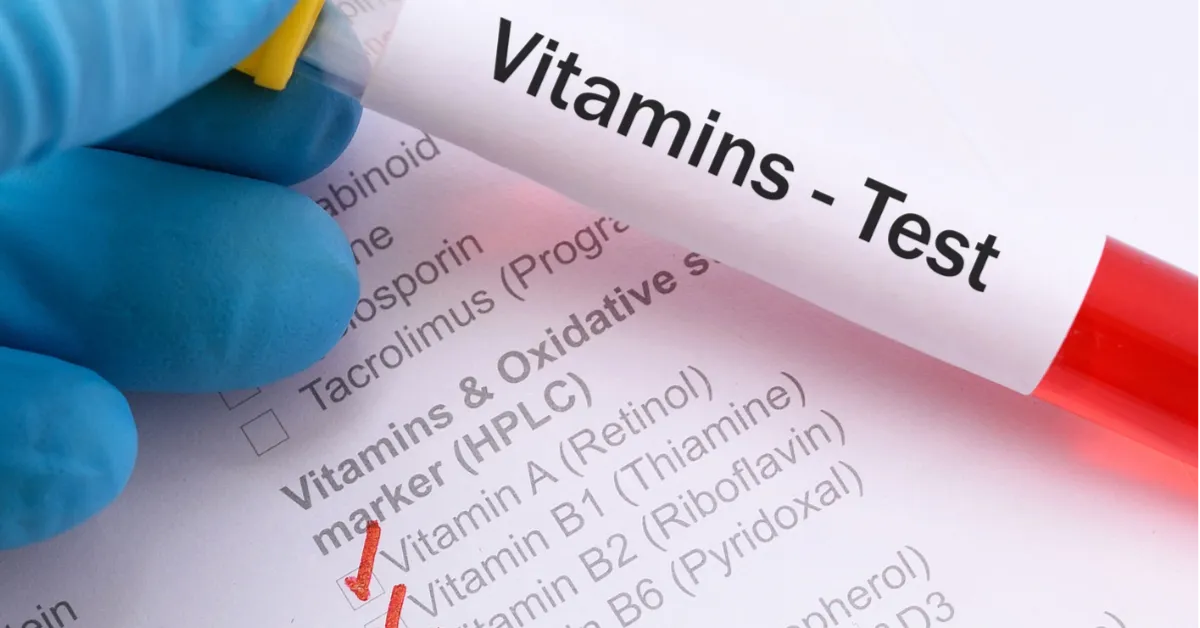USP Vitamin B2 Quantification in Beverages
The United States Pharmacopeia (USP) [1] , titled "Quantitation of Riboflavin (Vitamin B2)", provides a method to accurately quantify the riboflavin content in beverages. This service ensures that manufacturers and suppliers adhere to USP standards, which are widely recognized as benchmarks for quality assurance.
Vitamin B2, also known as riboflavin, is an essential water-soluble vitamin that plays a crucial role in metabolic processes within the human body. Its presence in beverages can enhance product health claims and appeal to consumers seeking fortified products. This service ensures compliance with regulatory standards and supports brand integrity.
The USP method [2] involves several key steps: sample preparation, extraction of riboflavin from the beverage matrix using an appropriate solvent, and subsequent quantification through spectrofluorometric analysis. The method is designed to be robust and reliable for various types of beverages, including alcoholic and non-alcoholic drinks.
The service leverages advanced instrumentation such as fluorescence spectrometers to achieve high precision and accuracy in riboflavin quantification [3]. This ensures that the results meet or exceed USP specifications. The method is particularly important for ensuring that the vitamin content declared on product labels matches the actual content, thus maintaining consumer trust.
Compliance with this standard is critical for manufacturers who wish to sell their products in markets where USP standards are recognized and enforced. This service helps ensure that products meet these stringent requirements, thereby protecting both the manufacturer's reputation and consumer health.
The robustness of the method allows it to handle various types of beverages, including those with complex matrices, ensuring consistent results across different product lines [4]. The USP method is recognized for its ability to provide reliable quantification even in challenging samples.
Applied Standards
The USP method is based on international standards that are widely accepted and used in the pharmaceutical, food, and beverage industries. The standards ensure consistency and reliability of results across different laboratories and regions.
- USP : Quantitation of Riboflavin (Vitamin B2)
- ASTM D4938-16: Standard Test Method for Determination of Total Nitrogen in Water by Continuous Flow Alkaline Persulfate Digestion and Salicylate-Nitrogen-Dye Coupling
- ISO 20570:2018: Beverages — Determination of Riboflavin (Vitamin B2) by Spectrofluorimetric Methods
The use of these standards ensures that the results obtained are accurate and comparable across different testing environments. This service aligns with international best practices, ensuring that clients meet global regulatory requirements.
Quality and Reliability Assurance
- Method Precision: The USP method ensures high precision through the use of advanced spectrofluorometric analysis. This minimizes variability in results, ensuring consistent outcomes.
- Repeatability: Repeated tests using this method yield similar results, demonstrating its reliability and consistency.
- Sensitivity: The method is sensitive enough to detect even low concentrations of riboflavin, making it suitable for fortified beverages.
The service employs a rigorous quality control process that includes regular calibration of equipment, validation of the test procedure, and proficiency testing. This ensures that every result meets the highest standards of accuracy and reliability [5].
Our laboratory is accredited to ISO/IEC 17025:2017 standards, which guarantees that our tests meet international quality requirements. This accreditation assures clients that they can trust the results produced by this service.
Use Cases and Application Examples
This service finds application in various sectors including food, beverages, and pharmaceuticals. Here are some specific use cases:
- Beverage Fortification: Ensuring that fortified drinks meet the declared vitamin content.
- Quality Control: Monitoring the consistency of riboflavin levels in different batches of a product.
- Label Compliance: Verifying that product labels accurately reflect the riboflavin content as claimed.
In addition to these, this service is also valuable for research and development (R&D) teams who need accurate data on riboflavin levels in new formulations or during process optimization [6].
The method can be used to detect deviations from expected values, which could indicate issues with the production process or raw materials. This proactive approach helps manufacturers maintain product quality and consumer trust.





